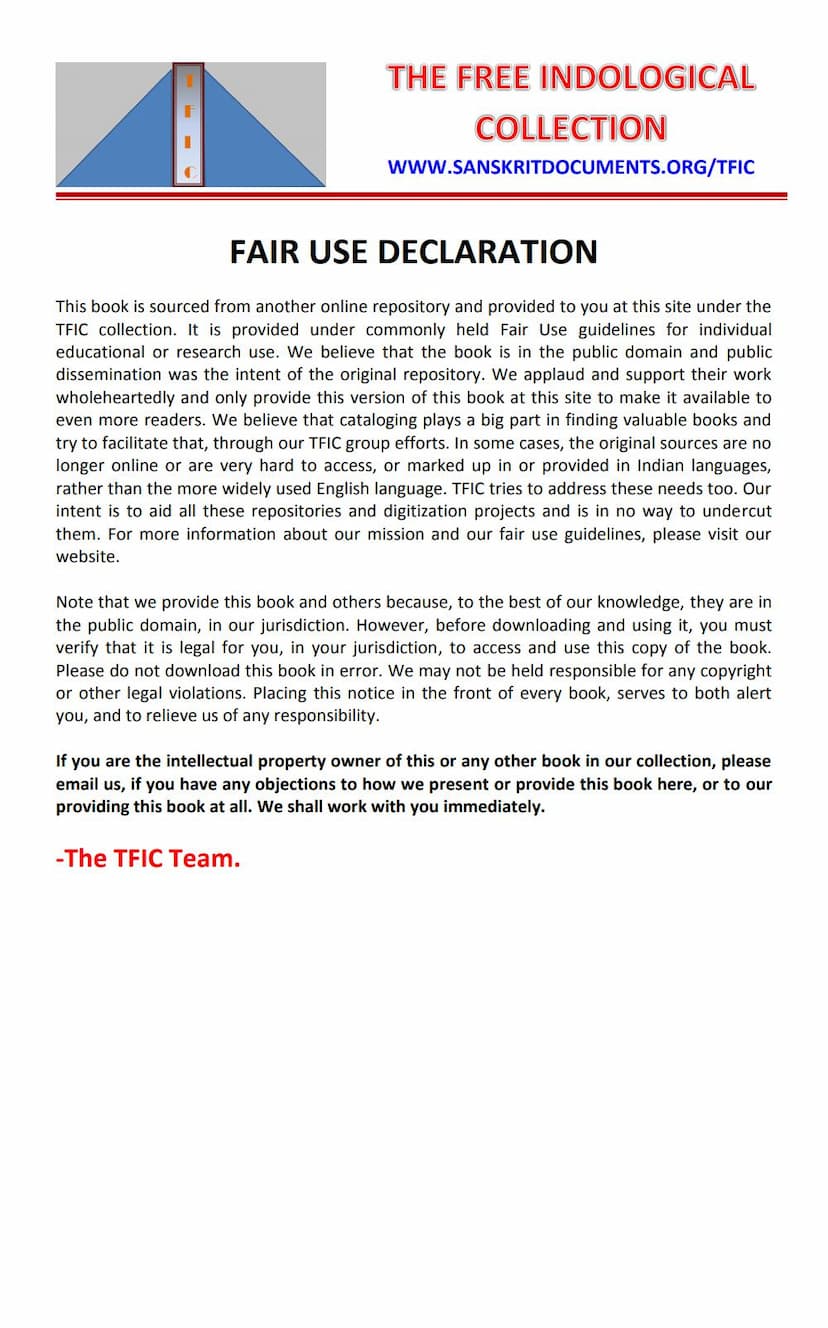Mahavira Yuga Ki Pratinidhi Kathaye
Added to library: September 2, 2025

Summary
This is a summary of the Jain text "Mahavira Yuga ki Pratinidhi Kathaye" (Representative Stories of the Mahavira Era), authored by Devendramuni and published by Tarak Guru Jain Granthalay. The text is a collection of 71 prominent stories from Jain Agam literature, presented in Hindi. The book was released in November 1975, coinciding with the 25th Nirvana centenary of Lord Mahavira.
Here's a breakdown of the key aspects based on the provided pages:
Introduction and Context:
- Purpose: The book aims to present representative stories from the era of Lord Mahavira, drawing from Jain Agam literature. It is intended to be informative and inspiring for readers, making ancient religious narratives accessible.
- Author: Devendramuni Shastri, a disciple of the renowned speaker and spiritual leader Shri Pushkar Muni Ji Maharaj.
- Publisher: Shri Tarak Guru Jain Granthalay, Udaipur, Rajasthan.
- Significance: The book was published during the 2500th Nirvana anniversary of Lord Mahavira, highlighting the importance of his teachings and the stories associated with his era.
- Fair Use Declaration: The provided pages include a declaration from "The Free Indological Collection" (TFIC), explaining that the book is sourced from another online repository and provided under Fair Use guidelines for educational and research purposes. They emphasize that their intent is to make valuable books accessible, especially those in older Indian languages or those difficult to access.
Content and Themes:
The book contains 71 stories that are presented as "representative stories of the Mahavira era." Based on the titles of the initial stories provided, the themes covered are diverse and aimed at illustrating various aspects of Jain philosophy, ethics, and way of life:
- "Mahavira Yuga ki Pratinidhi Kathaye": This title itself signifies the focus on narratives from the period of Lord Mahavira, likely featuring his teachings, parables, and the lives of significant figures of his time.
- Story Titles (Examples from the index): The stories seem to cover a wide range of moral and spiritual lessons, including:
- Spiritual Experiences: "Avyakt Anand-anubhuti" (Unmanifest Blissful Experience), "Prakash hi Prakash" (Light, only Light).
- Ethical Dilemmas and Virtues: "Aasakti-Anasakti" (Attachment-Detachment), "Karmafal" (Consequences of Karma), "Tum Chor Nahi Ho" (You are Not a Thief), "Niyami Se Siddhi" (Attainment through Restraint), "Tapas Pooot Jeevan" (Life Purified by Austerity), "Satyaev Jayate" (Truth Alone Triumphs), "Tyag ka Arth" (The Meaning of Renunciation).
- Wisdom and Understanding: "Agni Kahan Hai?" (Where is the Fire?), "Subuddhi Ki Buddhi" (The Intelligence of Subuddhi), "Apni Apni Drishti" (One's Own Perspective), "Pratibodh" (Enlightenment), "Kaha Rahasya" (A Secret).
- Devotion and Sacrifice: "Ve Balidani" (They are Sacrificers).
- Philosophical Concepts: "Kesa Janm, Kaisi Mrityu" (What Kind of Birth, What Kind of Death?).
- Personal Transformation: "Radha Ka Bhikhari" (The Beggar of the Road).
- Courage and Perseverance: "Upsargajayi Kamdev" (Kamdev Who Conquered Afflictions), "Vajradapi Kathorani" (Harder Than a Diamond).
Key Figures and Concepts Mentioned:
- Lord Mahavira: The central figure, whose teachings and life are the inspiration for the collection.
- Pushkar Muni Ji: The author's spiritual guru, who provides blessings for the book.
- Jain Agam Literature: The source material for the stories, emphasizing their scriptural and traditional value.
- Anekanat: (Anekant - multi-faceted truth) is mentioned as a core concept within the Agam literature.
- Karma: The concept of karma and its consequences is a recurring theme.
- Ahimsa, Satya, Sanyam, Tyag, Brahmacharya: These are identified as key virtues emphasized in Jain literature.
Narrative Style and Content:
- Storytelling: The book emphasizes the power of stories as a medium for conveying profound truths, moral lessons, and spiritual insights. The author highlights the enduring nature of impactful stories.
- Accessibility: The collection aims to make the philosophical and ethical teachings of Jainism understandable and relatable through narratives.
- Worldly Wisdom: The stories often blend worldly wisdom with spiritual guidance, illustrating practical applications of Jain principles in everyday life.
- Interconnectedness of Traditions: The author notes that some stories from Jain literature have parallels in Vedic, Buddhist, and even foreign literature, suggesting the ancient origins and universal appeal of certain narratives.
Overall Impression:
"Mahavira Yuga ki Pratinidhi Kathaye" is a significant work that seeks to illuminate the teachings of Lord Mahavira through engaging and didactic stories. It serves as a repository of Jain wisdom, offering readers moral guidance, spiritual reflections, and a deeper understanding of Jain philosophy through narratives that have stood the test of time. The book appears to be a valuable resource for anyone interested in Jainism and its rich literary heritage.